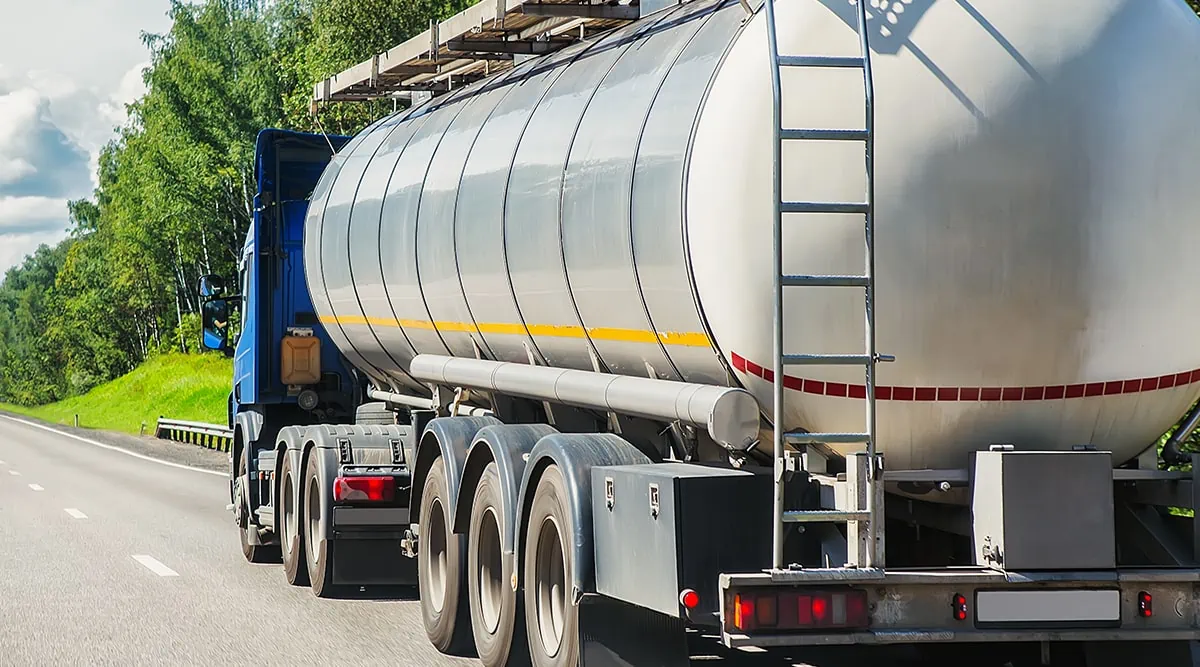The disposal of liquid waste, encompassing non- and hazardous waste disposal for both solid waste and liquid waste disposal, is not just an environmental concern but also a pressing legal issue for UK businesses. Understanding these legal intricacies is crucial to ensure compliance and avoid hefty penalties. In this regard, services like vacuum tanker hire are pivotal, offering solutions that align with the stringent legal standards.

We can help! Get a quote below
Get a quote
The UK boasts a comprehensive regulatory structure overseeing both liquid and solid waste disposal:
- The Environmental Protection Act (1990): This act serves as a cornerstone, establishing benchmarks for waste disposal. It emphasises the protection of the environment from hazards, including those from sedimentation basins and septic tanks.
- The Hazardous Waste Regulations (2005): This regulation is vital for businesses to discern what constitutes hazardous liquid waste. It provides a detailed framework, ensuring that waste liquid, especially of a hazardous nature, undergoes safe and responsible disposal.
- The Waste Duty of Care Code of Practice: This code underscores the inherent duty of care every business possesses. It sheds light on the obligations businesses must uphold in managing waste, emphasising the importance of liquid waste collection and the common liquid waste disposal methods that align with legal mandates.
Classification of Liquid Waste in the Context of Environmental Protection
In waste management, liquid waste is categorised based on its potential impact on environmental protection and the measures required for its disposal:
Hazardous Liquid Waste
This category encompasses waste that can severely harm natural habitats and aquatic ecosystems, such as aggressive treatment by-products from combustion chambers or residues from oven cleaner. To prevent contamination of the water supply and protect marine organisms, such waste must undergo treatment in facilities equipped with anaerobic filters and light treatment systems. Once treated, they are stored in appropriate drums to ensure safe disposal and prevent any leakage into UK sewers.
Non-Hazardous Liquid Waste
This type of waste, while less threatening, still poses risks if not managed correctly. Examples include water run-off from agricultural land, which, if not treated, can affect plant growth and the overall health of the environment. To promote environmentally friendly practices, some municipalities offer free bins for the collection of this waste product, ensuring it undergoes further treatment before release.
Septic Tank and Sedimentation Basin Waste
Specialist Waste Streams
Certain waste types demand specialized disposal protocols due to their unique composition or potential impact. For instance, residues from pharmaceutical processes might require more stringent measures to protect humans and the environment. These wastes are often treated in dedicated facilities to ensure they don’t harm natural habitats or aquatic ecosystems.
Get a quote

Legal Responsibilities of Businesses in Liquid Waste Management
Businesses are bound by legal obligations when it comes to managing their waste, especially liquid waste:
Waste Transfer Notes
As part of the liquid waste collection process, whenever liquid wastes, whether in liquid form or solid waste, are transferred, maintaining proper documentation is essential. This not only ensures traceability but also validates that the waste liquid has undergone the appropriate liquid waste disposal methods and has been managed in compliance with legal standards.
Storage and Handling
It’s imperative for businesses to store waste, especially hazardous liquid waste, in a manner that mitigates environmental risks. This includes preventing leaks from septic tanks or spills from sedimentation basins. Proper storage ensures the protection of human health and the environment.
Disposal
Employing the right waste disposal methods is a legal mandate. Whether it’s common liquid waste removal or through specialised methods like the use of an anaerobic filter, businesses must ensure that their liquid waste removal processes culminate in disposal at licensed facilities. This is especially crucial for non-hazardous waste, ensuring it’s treated with the same diligence as its hazardous counterparts.
The Role of Vacuum Tanker Services in Disposal of Liquid Waste
Vacuum tanker services play a pivotal role in the proper liquid waste management for businesses, ensuring they adhere to the guidelines set for the disposal of liquid waste:
- Safe Transportation: These tankers are specifically designed for liquid waste removal, preventing spills and leaks during transit. This ensures that both hazardous liquid waste and non-hazardous liquid waste reach their designated disposal sites without any incidents.
- Efficient Disposal: Vacuum tankers are adept at handling both solid waste and liquid wastes. They are especially crucial for hazardous waste disposal, ensuring that liquid waste disposal methods are followed promptly and in line with regulations. They also provide solutions for common liquid waste disposal challenges, such as the need for specialized liquid waste containers.
- Documentation and Traceability: Liquid waste disposal is not just about removal but also about traceability. Partnering with liquid waste management services ensures businesses have the necessary documentation, from liquid waste collection to disposal. This proves they’ve adhered to the standards set for waste disposal, whether it’s hazardous or non-hazardous waste.

Get a quote below
Get a quote
Penalties for Non-Compliance in Disposal of Liquid Waste
The implications of not adhering to liquid waste disposal methods can be dire:
- Fines and Sanctions: Improper liquid waste management can lead to significant financial penalties for businesses. This includes not using designated liquid waste containers or failing to store liquid waste properly.
- Reputational Damage: Beyond the monetary penalties, non-compliance in liquid waste disposal can severely tarnish a business’s reputation, especially if hazardous waste is involved.
- Legal Proceedings: In extreme situations, where there’s a blatant disregard for liquid waste disposal method guidelines, businesses might face legal action or even prosecution. This underscores the importance of services like vacuum tanker services in ensuring compliance.
Best Practices for Businesses in Liquid Waste Management
To ensure the proper disposal of waste liquid and other liquid waste:
Regular Audits
Businesses should consistently review their waste disposal methods, especially when dealing with sewage and water runoff, manufacturing process by-products, and waste oil from operations.
Partnering with a Waste Management Company
Collaborating with a reputable waste management company can assist businesses in ensuring that both hazardous and non-hazardous waste is safely disposed of. This includes managing human waste from septic tanks, cooking oil from food services, and even organic material that can be turned into organic fertilizer.
Employee Training
It’s essential for staff to understand the risks of improper disposal, especially when dealing with toxic contaminants that can harm human health or kill marine organisms. Training should also cover the recycling facility processes, the significance of sedimentation basins, and the use of centrifugal force to separate solid particles from the remaining water.

Liquid waste disposal, whether it’s sewage treatment or the handling of remaining sludge, is a critical concern for businesses. Improper disposal can lead to the release of greenhouse gases, contamination of water sources, and other environmental hazards.
Moreover, there are opportunities to repurpose waste, such as using organic matter to generate electricity through power steam turbines or converting fly ash and lime dust into beneficial products. With the right disposal method and adherence to regulations, businesses can not only prevent harm but also harness waste’s potential, turning solid wastes into valuable resources.
Partnering with a dedicated waste management company ensures that businesses navigate these complexities efficiently, prioritizing both environmental responsibility and operational excellence.
Call InspireWaste at 0800 002 9282 or get a quote below for liquid waste disposal services.
Get a quote





